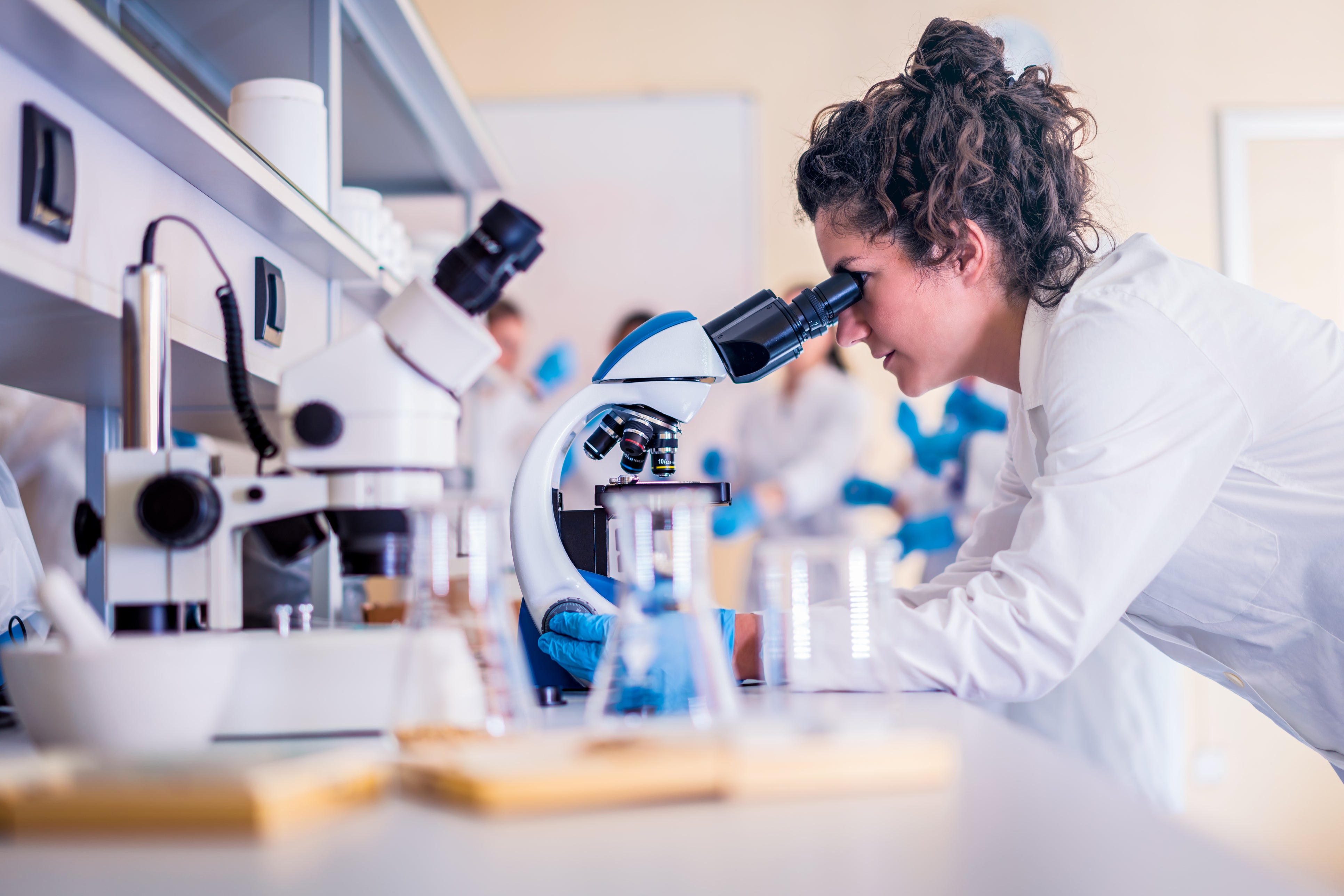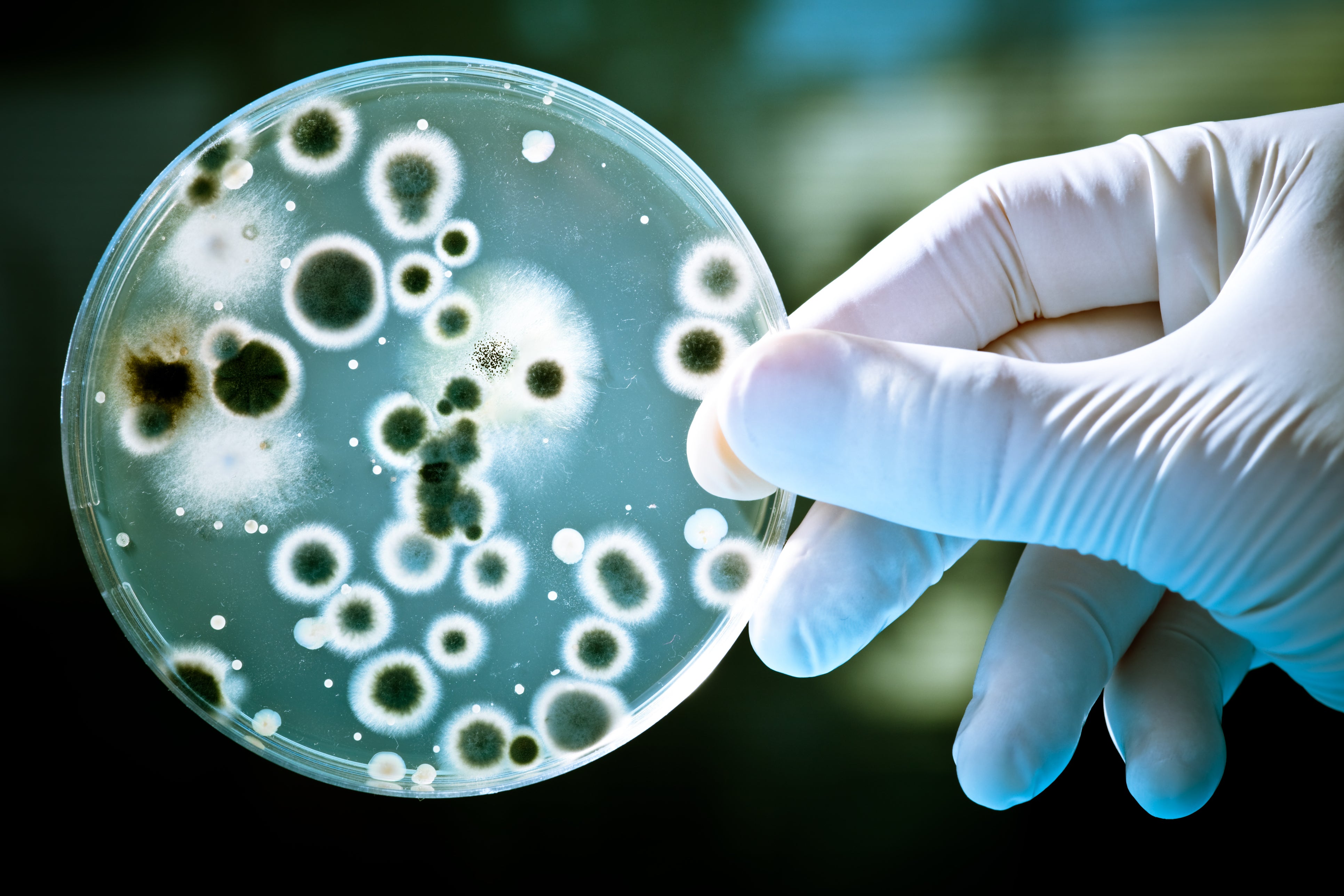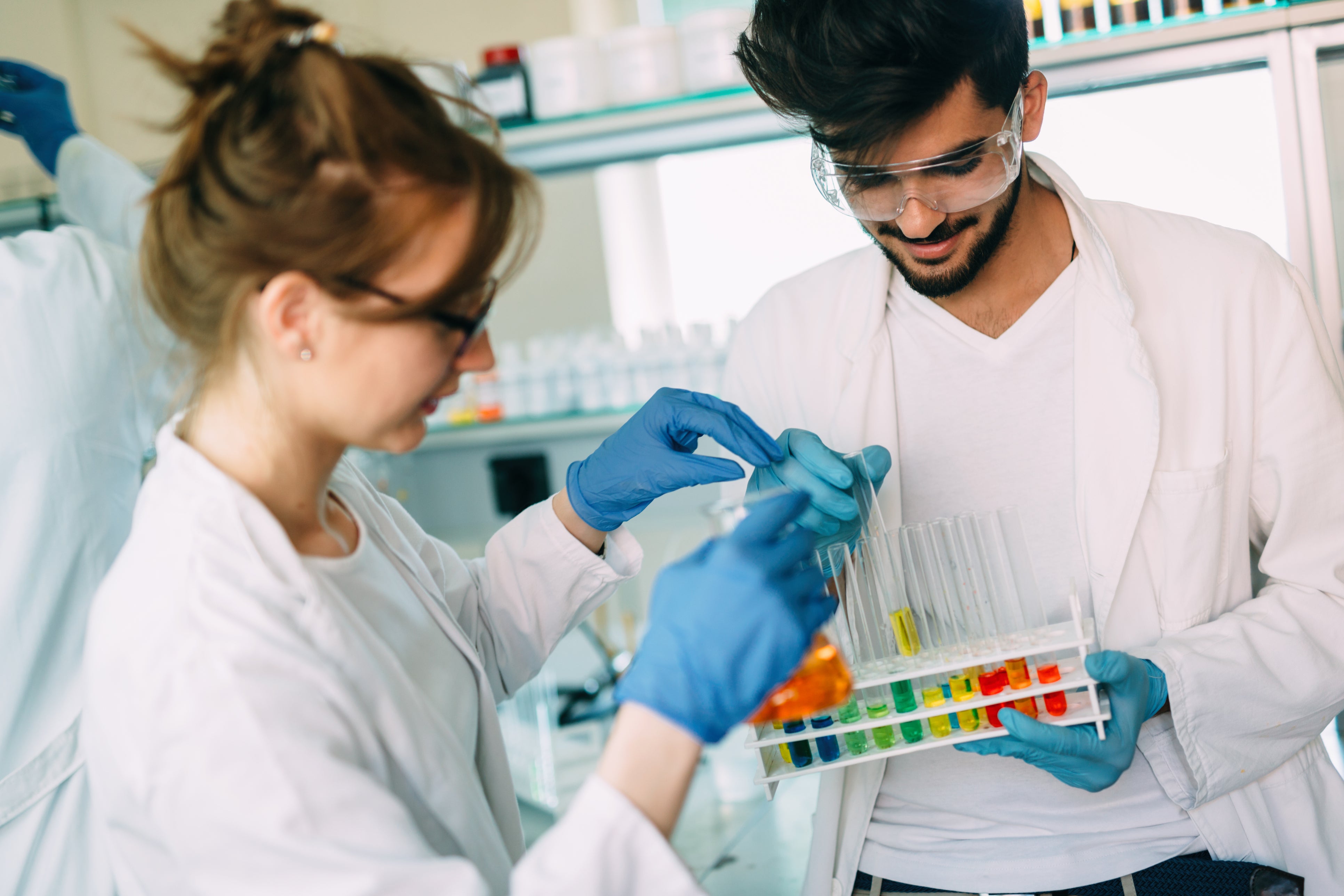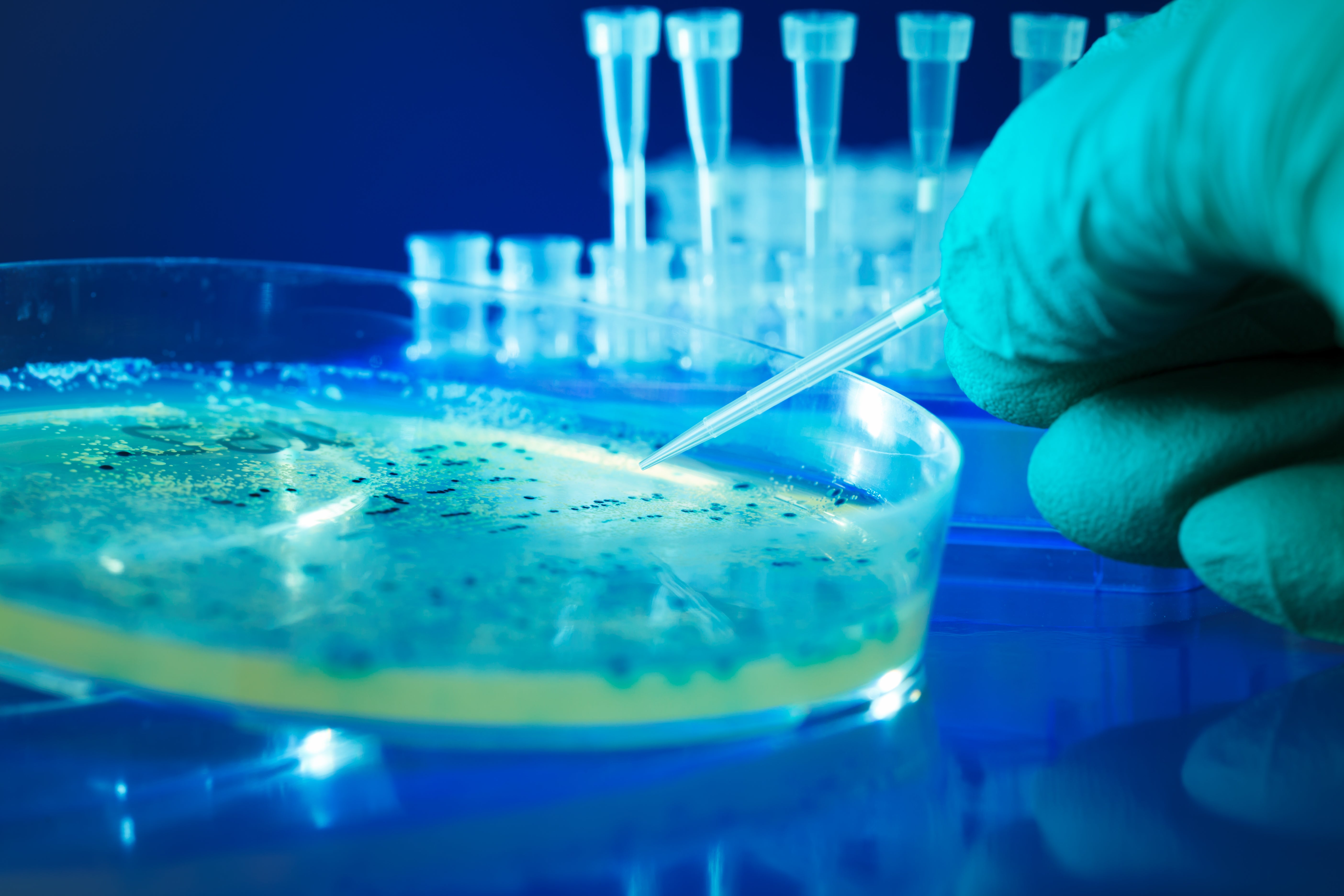
Microbial Pathogenesis
The mechanisms by which organisms become pathogenic and the responses of plants, animals and arthropods to an infectious agent are surprisingly universal. Our Microbiology program integrates the long standing strengths of UCR in plant and vector biology with its expanding biomedical community, providing a multidisciplinary approach to microbiology in agriculture and medicine.

Environmental Microbiology and Ecology
Environmental microbiology and ecology is a rapidly developing field that investigates the distribution of microorganisms in their environment and the processes they catalyze. UCR microbiologists research the population structure in communities of microbes from soils to intestinal tracts and the impact of ecological changes on their composition. They also explore public health aspects of these communities, including environmental pathogens and engineering practices for treatment of waste products.

Molecular and Cellular Microbiology
Microbiologists at UCR employ genetically and biochemically tractable prokaryotic and eukaryotic microbes for study of fundamental biological processes. These include gene regulation, cell division, signal transduction and cell differentiation. Many of these investigations employ fluorescence microscopy and other modern cell biology techniques.

Microbial Evolution, Genomics and Metagenomics
The last decade has witnessed an unprecedented increase in the number of organisms, most of them prokaryotic and eukaryotic microbes, for which genome sequences are available. UCR microbiologists are using high throughput sequencing and functional genomics technologies to understand evolution of organisms, comparing diversity of microbial communities, or discovering molecules that impact microbial pathogenesis on their hosts.
